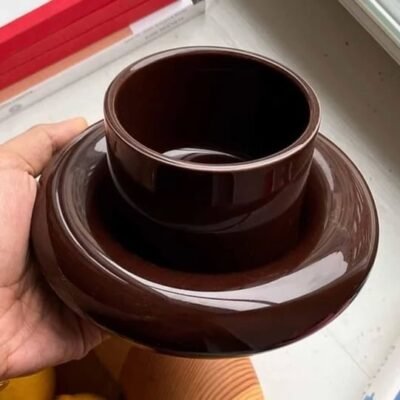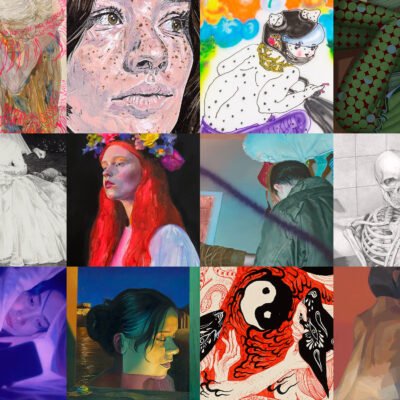We are proud to announce that Hojarasca® Cookies will be available in the Museum’s North & Clark Café, featuring the original recipe created by Francisco and Celia Bonilla, founders of El Nopal Bakery®. In this blog post, CHM historian Jojo Galvan looks back at the legacy of El Nopal and this taste of Chicago history.
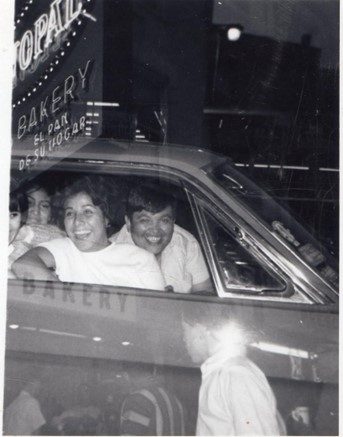
Customers arriving at the 1961 inauguration of the El Nopal Bakery® in Pilsen. The iconic El Nopal® neon sign can be seen reflected in the top left corner of the image. Courtesy of Frank Bonilla
Chicagoans with a sweet tooth likely have a favorite panaderia (Mexican bakery) among the dozens of options on every street across the city’s South and West Sides. The panaderia experience is usually no frills, where visitors can expect a fairly similar setup no matter where they go. Baking trays lined with colorful pieces of pan dulce (sweet bread) fill up the storefront, sometimes behind glass vitrines, other times piled up on baking racks. Self-service is the name of the game. With plastic trays and metal tongs available to shoppers, the selection of goodies isn’t all that different from picking groceries at the supermarket. While some staples, like medialunas/cuernitos (croissants) or mantecadas (sweet buttery muffins) can be found in just about every bakery, the way to stay competitive and develop a dedicated clientele is by offering regional specialties, or, like the legendary El Nopal® bakeries did, offer up original recipes that blend new and old flavors to set you apart from the competition.
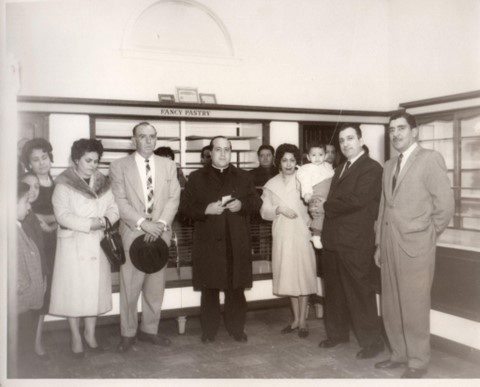
The 1961 inauguration of the flagship bakery in Pilsen was blessed by a priest from the nearby St. Francis Church, in University Village. The Bonillas, and their one-year-old son, Frank, are second and third from the left. Courtesy of Frank Bonilla
The El Nopal® bakeries were a twin set of neighborhood bakeries on the city’s Lower West Side that quickly rose in popularity due in no small part to the creation of the Hojarasca® (Spanish for tender leaf) cookie. El Nopal was the dream of husband-and-wife team Francisco and Celia Bonilla, who met in athe bakery where Celia worked in San Antonio. After moving to Chicago, Francisco found work as an artisanal baker in the kitchen of the Palmer House Hotel until they opened their first location on January 1, 1954, at 330 S. Halsted. By 1960, the store moved to its flagship location on 18th Street, and in 1974, a second location opened on 26th Street in the Little Village neighborhood. Through El Nopal®, the Bonillas introduced other products that are now staples in Chicago, the most notable being the Rosca de Reyes (King Cake), traditionally eaten on January 6 to celebrate Epiphany, sometimes called Three Kings Day.
During their more than 60 years of operation, a visit to the El Nopal® bakeries became a rite of passage for anyone traversing through the West Side, from politicians and celebrities to everyday Chicagoans, and a testament to the persistence of the Latine presence across the city. The bakery even makes a cameo in the 1988 action film Above the Law starring Steven Seagal and featured in a number of scenes in the music video for Carlos Santana and Michelle Branch’s 2002 chart topper, “The Game of Love.” The Pilsen location closed its doors in 2013 after the passing of Celia Bonilla, who had been running the business alongside her son, Frank. In 2015, the Little Village location shuttered its doors when Frank decided to retire.
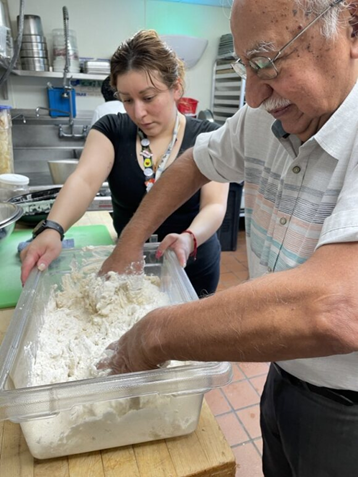
Manuel, who served as the master baker for El Nopal®, visited from Mexico to work with North & Clark Café manager Olga Castrejon on baking according to the traditional recipe.
El Nopal’s best sellers, the heart-shaped Hojarasca® cookies are known by many names (Biscochitos, Mexican Shortbread Cookies, Wedding Cookies, etc.), but the recipe created by the Bonillas is one of a kind. Crafted from a highly guarded blend of specific flour, spices, and baking techniques, the recipe was, for years, known only to the Bonilla family and El Nopal®’s master baker, Manuel, who resides in Mexico. However, as part of the larger Aquí en Chicago project, and thanks to a partnership between Frank Bonilla and CHM’s North & Clark Café, the Museum is thrilled that El Nopal®’s Hojarasca® cookies will once again be available for purchase, with batches made daily in the Museum café following the same recipe that made the Bonillas legends amongst Chicago’s panaderos.
Available daily while supplies last.
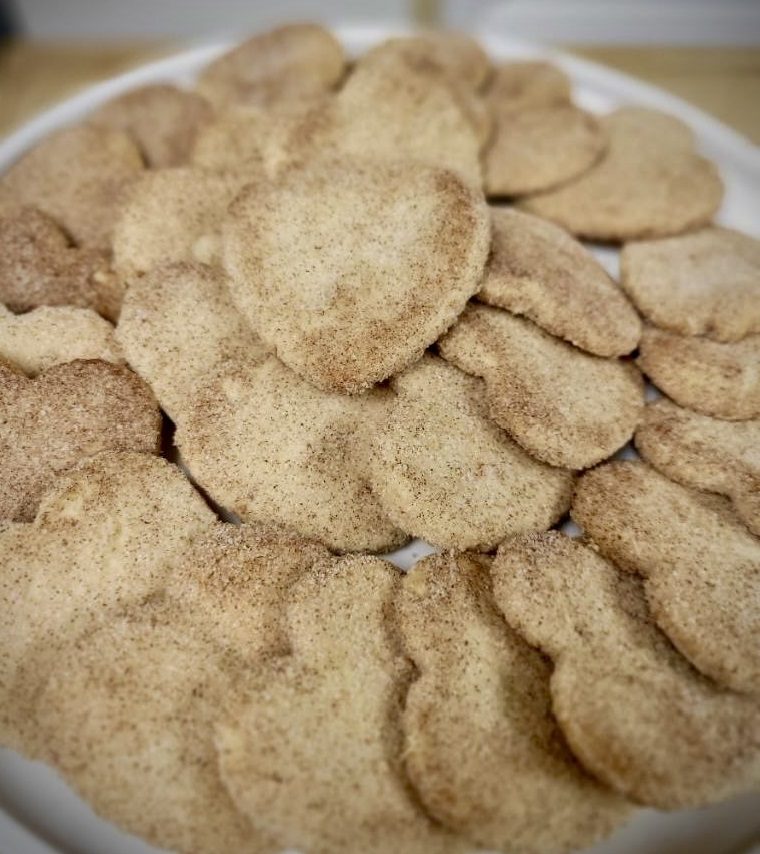
A fresh batch of Hojarasca® made at the North & Clark Café.
This blog post would not have been possible without the research of Deborah Kanter, author of Chicago Católico: Making Catholic Parishes Mexican, available at CHM’s Museum Store and online.

